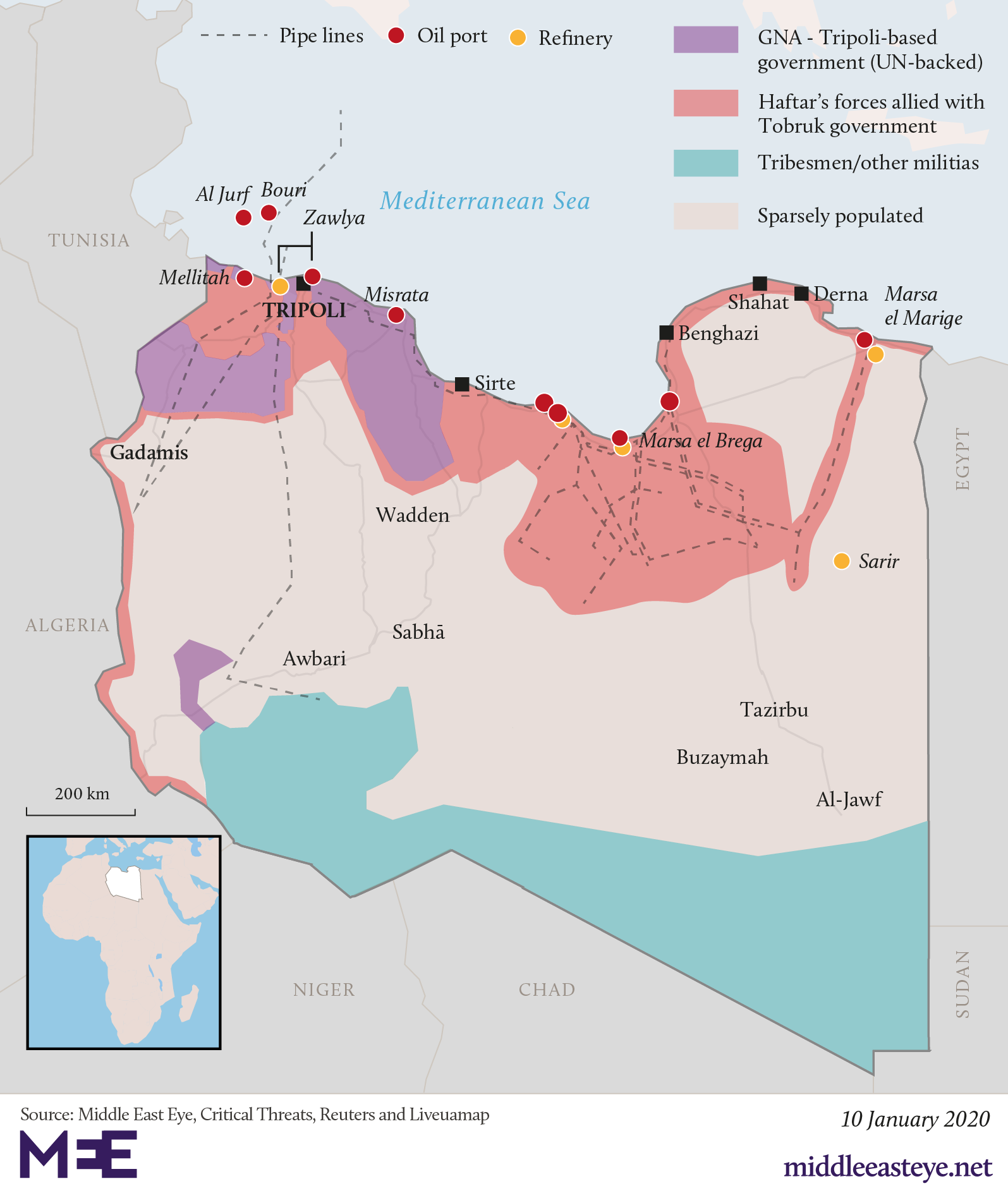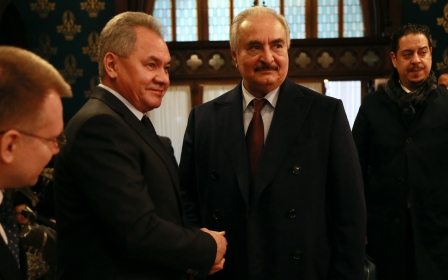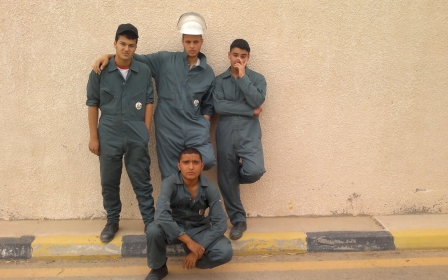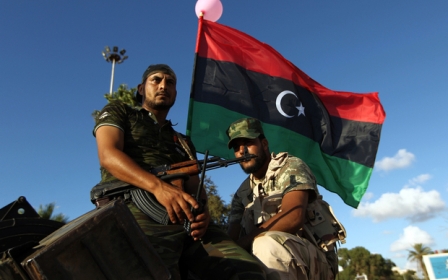Libya's rival leaders, Khalifa Haftar and Fayez al-Sarraj, attend peace talks in Moscow
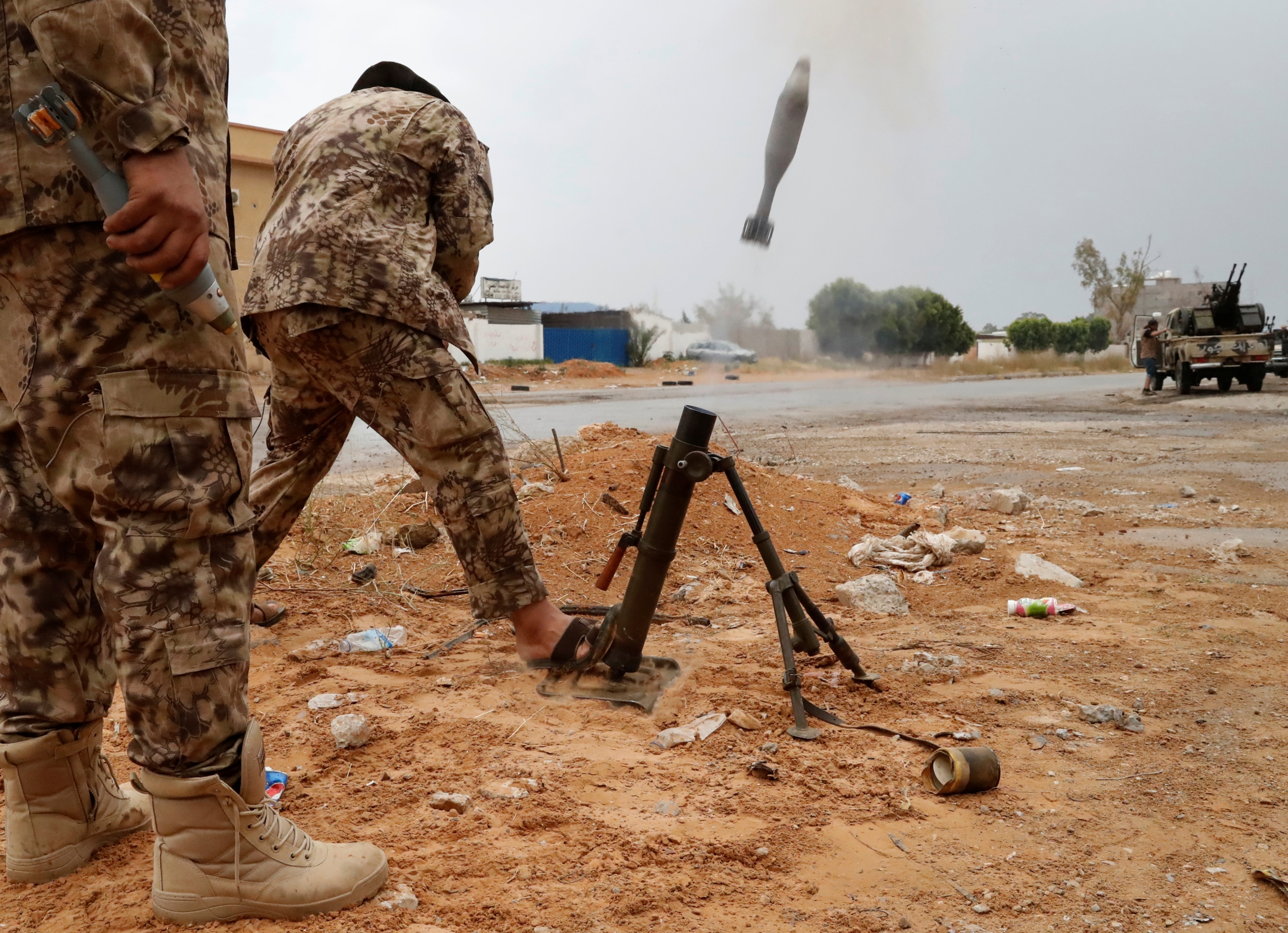
Leaders from Libya's warring rival sides are attending peace talks in Moscow on Monday, hours after a ceasefire came into effect that reduced heavy fighting and air strikes in and around the capital.
Representatives from Turkey and Russia, which back opposing sides in the conflict, are also in attendance, and have urged both sides to sign a binding truce to end a nine-month-old war.
Libya, a major oil producer, has been wracked by conflict since 2011 when a Nato-backed uprising toppled and killed Muammar Gaddafi.
The country has been split between two rival administrations: the Government of National Accord (GNA), based in Tripoli, and the House of Representatives based in the eastern city of Tobruk.
Both governments have been accused of failing to integrate militias that rose up against Gaddafi into a formal security structure, with some armed groups controlling vast swathes of territory including oil terminals, airports, military barracks and other crucial infrastructure.
New MEE newsletter: Jerusalem Dispatch
Sign up to get the latest insights and analysis on Israel-Palestine, alongside Turkey Unpacked and other MEE newsletters
Since April 2019, Khalifa Haftar, who is allied with the House of Representatives, has sought to defeat the militias that support the GNA, under the pretext that he is fighting a war against "terrorism".
In recent weeks, his forces have made considerable gains since the introduction of mercenaries and private military groups from Russia. Last week, his fighters captured the strategic city of Sirte.
The Wagner Group is a shadowy Kremlin-backed private military contractor that has also been involved in the Syrian civil war, where Moscow backs Assad against rebel forces.
The military contractor is also believed to be active in Sudan and the Central African Republic, where it reportedly serves as President Faustin-Archange Touadera's personal security detail.
Asked about those mercenaries, Russian President Vladimir Putin said on Saturday that any Russian citizens fighting in Libya were not representing the interests of the Russian state or receiving money from it.
Pro-Haftar forces are supported by the United Arab Emirates, Saudi Arabia and Egypt. The GNA has also accused Paris of supporting Haftar and tacitly backing his assault on Tripoli, claims French officials have denied.
Tim Eaton, a senior research fellow with Chatham House, told Middle East Eye that it was unclear if the temporary ceasefire will hold.
"The question of a 'freeze' in the conflict has been rejected by the GNA alliance in the past because it would mean Haftar's forces remaining on the approaches of Tripoli," he said.
"The GNA alliance fear that a ceasefire in these circumstances would simply give Haftar time to re-tool. For this reason, the GNA had insisted upon the return to pre-April 4th positions.
"It will be interesting to see how the terms of the agreement in Moscow deal with this issue, which may in turn indicate whose external backers are in the driving seat."
The talks in Moscow are are aimed at agreeing on an unconditional and open-ended ceasefire, and take place ahead of a summit in Berlin on 19 January, which will also bring together the foreign backers of both the rival sides.
During a visit to Moscow on Saturday, German Chancellor Angela Merkel said Berlin wanted to host Libyan peace talks to build on what she said she hoped would be successful joint efforts by Russia and Turkey to stop the conflict.
Middle East Eye delivers independent and unrivalled coverage and analysis of the Middle East, North Africa and beyond. To learn more about republishing this content and the associated fees, please fill out this form. More about MEE can be found here.


